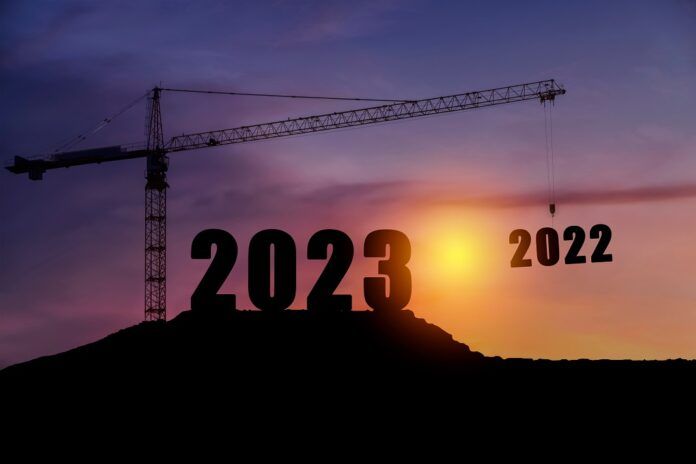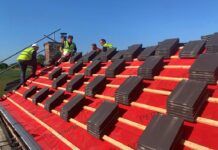Peter Johnson, founder and chairman – Vivalda Group:
“A good number of other businesses in the construction sector have had a quietly positive year and Vivalda Group is no exception. Despite the challenges of huge fluctuations in raw material costs, skill shortages and breathtaking hikes in the price of energy, we hit all of our key targets in 2022 with an increase in turnover to a record £40m.
“While Jeremy Hunt’s recent budget did not scuttle any major UK building or civil projects such as Hinckley Point C and HS2, overall prospects for 2023 are patchy at best. Granted, construction was the only sector of the economy not in reverse gear according to the latest ONS survey; however, it is expected to dip into recession next year as higher interest rates take their inevitable toll on investment.
“Looking ahead to 2023 we expect to see increasing demand to supply remediation cladding for private as well as public sector buildings now the £6bn fund set aside for the purpose has been made more accessible. Replacing dangerous Grenfell-style cladding with Vivalda Group’s safety assured range represents a growing portion of our turnover, providing A1 and A2-rated cladding materials including fibre cement, GRC, solid aluminium, mineral rock and terracotta. We see demand for high quality and, above all, fire-resistant cladding continuing to grow for the foreseeable future. Our biggest challenge is to develop and retain skilled technicians, CNC operators and welders to deliver the levels of service our customers rightly demand.”
Mark Bruchez, managing director – Kemper System:
“It was a busy start to the year as the sector began addressing issues following disruptions from the pandemic. There has been a healthy pipeline of work, but delays have meant some projects have been slow to start. This has been caused by a number of issues, mainly the skilled labour shortage in the industry. We’ve seen roofing contractors reluctant to take on too much work without first knowing they have the skilled operatives available to deliver both on time, and also to a high standard.
“Inevitably, cost increases and building material supply issues have also contributed to project delays. Many companies have therefore had to become more cost efficient, particularly with jobs that have already been priced. No one likes to hike-up prices for loyal customers, but it is unfortunately a result of growing inflation. For us as a company, we planned for additional stock holding and could replenish as required to meet customer demand.
“Looking ahead to 2023, the Office for Budget Responsibility (OBR) expect the economy to be in recession until quarter four of 2023; with inflation peaking at the current 11%. We have already witnessed some improvement in financial market confidence and now the chancellor has communicated his plan for stability, growth, and public services. Investment in infrastructure has been promised, which is a real positive.
“As an industry, roofing is still making great strides to conform and enhance digitalisation. There has been real focus on this topic, especially during the pandemic as our own working habits have necessitated change. New digital tools have been rolled-out across the sector to help boost productivity for contractors and specifiers across the UK.
“Examples of such technology within roofing, which Kemper System has also implemented, has been to use real-time video links to support customers onsite and portable devices used by site personnel to assist with the timely issue of survey data and reporting. Some of our suppliers have taken similar initiatives on board as we all continue to look for smarter ways of being more efficient.
“We are always looking to seek out new opportunities with our customers and to grow. The big question we all ask of 2023 and beyond is what the government’s detailed plan of action in construction and roofing is.”
Sarah Spink, CEO – LRWA:
“In 2022, there was a lot of uncertainty in the construction sector thanks to unprecedented political upheaval which has weakened the economy. The energy crisis and issues with product availability has also driven prices up, partly a result of the war in Ukraine.
“The impact of the Grenfell tragedy is still ongoing, and new legislation has come into force this year, as well as the introduction of competency standards for construction. In 2022, trade associations have been lobbying hard to minimise the impact of the transition from CE to UKCA marking.
“The LRWA itself has experienced almost a 38% growth in membership, with 26 new members, reinforcing the need for specialist trade associations to represent our sector at higher levels, especially during difficult periods.
“Bringing back in-person events this year was fantastic; like the LRWA Awards and Gala in March, which recognises the impressive skills and strengths in our sector. And we’ve managed to continue attending the various working groups the LRWA is involved in. We also raised more than £10K for LandAid in our Virtual Charity Challenge, which surpassed all our expectations.
“Construction output is forecast to fall by 3.9% in 2023, following a rise of 2% in 2022. This is mainly due to the impact of a wider economic recession – but the LRWA remains optimistic for the year ahead. Historically, the sector performs well in an economic downturn driven by a focus on refurbishing existing buildings, and we will continue to develop the latest technical guidance and provide a voice on the issues that matter the most.”




